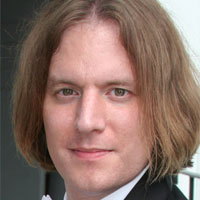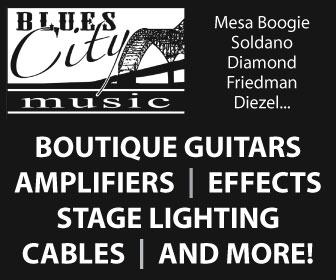Bert Switzer
Chorus and Verse Spotlight
The late 1970s saw the birth of a new bastard child of rock and roll, and it was called punk. From the dive pubs of England, to the dive bars of New York City, and anywhere else high-energy kids with a different view of society could find solace in the underground, the floors soaked with booze and sweat as the equipment strained under the assault.
Not that most of them were really welcomed, and few of them survived for very long. Perhaps that was the magic, the fleeting, almost desperate quality of something that has to be experienced while there was actually an experience to be had.
In Boston, The Destroyed filled this role quite nicely for two brief years. In 1977, the band's lead singer was drawn to a drummer who was rehearsing so loud that the walls shook. From there, it was a wild ride.
Ironically, considering how Bert Switzer was asked to joined the band, they never rehearsed. It all happened live, on stage. Fans threw bottles and security had to remove them because they wouldn't stop. They were banned from Boston's notorious punk club, The Rathskeller, yet performed with the J. Geils Band for 12,000 people in Portland, Maine. They never recorded a professional record and, by Switzer's own admission, left no mark on their own local scene. But, they never really fit in there anyway.
After the band broke up in 1979, owning to a wild lifestyle that they all knew just couldn't continue, Switzer kept in touch with the music industry, playing around here and there. As he discussed in his interview with Chorus and Verse, real-life distractions kept him away from the studio and from playing.
Last year, he finally returned to the studio to release "Bert Switzer 1977-2002," a disc which pulled out some of the old cassette recordings of The Destroyed and his other early project, Monster Island. This was the first professional release of any of this material, and he coupled it with two new tracks, his first recordings in years.
The success of "1977-2002" led to Switzer being contacted by the Destroyed's lead singer, Joe Jackson, formerly Joe Rainbow, who put together their latest project, "The Destoyed: Outta Control," which includes ten more tracks from the original Destroyed of the late 70s, three new Switzer tunes, and seven songs recorded by the restored band in 2003.
With these two records offering a testament both to what was, and what is, fans have an opportunity to experience classic punk and hear it along with its contemporary predecessor. Switzer goes on to fill us in on where it goes from here.
Over the past year, you've released two CDs, "Bert Switzer 1977-2002" and "The Destroyed: Outta Control". How do these two records serve to document your career, and how did it feel for you to become involved with that music from the late 1970s again?
The older songs on the two CDs are a good representation of the musician I was during the late '70s. The new songs represent where I am at this time.
Overall, it is a good document; the only drawback is [that] the older songs were recorded on cassette, and the sound quality is not perfect. The drums can't always be heard properly.
It is exciting for me to become involved with the '70s music again because I still love it. My heart is still in it. Also, it was exciting for me to give the music its first public release. It would have been nice if better-quality tapes were available; but, for me, the power of the music is still present.
Are your feelings about the music recorded between 1977 and 1979 different now than it was back when it was first produced? Do you feel that the music still feels current 25 years later, and how does it compare to the punk bands of today?
My feelings about the music from that era are as strong today as they were back then. To me the music does not seem dated but current. There is an edge and an energy there that makes it relevant. I would not compare it to today's music. It's two different eras.
Shortly after you started playing and became involved with the music business, you had a chance to meet and hang out with Jim Morrison after a Doors show in New Hampshire. Can you share some impressions of Morrison, and how the person differed from the personality that fans saw on stage?
I spent an afternoon with Morrison in 1967. Back then he was my hero. No one knew anything about the Doors at that time but me.
I introduced myself to Jim before the show. When he realized I knew his history, he immediately became my friend. He took me to his dressing room, and we talked for a long time. I found him to be real friendly. Our meeting was brief, so I could offer no real insight about him. I can offer this, though: The audience was stunned by his talent. You could feel that from them. The Doors and Morrison were never again better than they were that night, as they were at their peek that summer.
You joined Boston punk band, The Destroyed, in 1977 and stayed with them until their demise in August 1979. Talk about the Boston music scene at that time, and the role that the Destroyed played during those years. Did the Destroyed have a lasting influence on that scene or, like many punk bands at that time, did they simply live fast for a brief time and burn out?
When we arrived on the Boston scene in 1977, we felt it was all a clique. We, the Destroyed, were the outsiders in the Boston Punk Rock scene, we were the only street punk band, and we did not fit into the Boston music scene.
We played no real role and had no lasting influence in Boston. We broke up because we were not accepted back then, and the band was outta control and crazy. One thing, though, that band had not burnt out, at the end the Destroyed were still a killer band.
How has the Boston music scene changed since the late 70s? Are there still venues for live music and places where punk bands can gig? Would a band like the Destroyed be able to last as long as they did in today's scene?
I have lost touch with the Boston music scene. The Destroyed could not fit in around Boston then. I don't know about today.
What was your drum set like during your early career with the Destroyed? What sort of equipment did you use at the time?
Back then, same as now, I used five drums and one foot pedal. I used cheap equipment back then same as now, I like the challenge of trying to get a sound out of low-end equipment.
The albums have drawn critical praise for your drumming. What makes a great punk drummer? Is the perception that punk is easy to play unfair, or is that what makes punk so energetic and attractive for its fans?
I was never a punk drummer. I was the non-punk in the Destroyed. I brought a free style of rock drumming to the band.
I can offer this, though: punk rock drumming is harder than it looks. Those fast tempos can be difficult. I think fans are attracted to the energy that punk rock offers.
"Outta Control" marks two reunions for you: original Destroyed vocalist J.D. Jackson and guitarist Henry Kaiser. Share with us the role that each of these men have played in your musical career, and how you happened to get back in touch after so many years and work together on this project?
Jackson's songwriting has been an influence on me. I have always been influenced by great songwriters. Jackson is unique and his songwriting is nothing short of being brilliant.
Kaiser is incredible. His playing influenced me in that it made me open up and want to take thing as far as I possibly could.
The Switzer CD release prompted Jackson and Kiser to contract me once again. I was happy they did.
Throughout your career, you've taken a couple of extended breaks from playing drums, most recently from 1993 until you started again in 2001. What made you stop playing, and what drew you back to the music again?
It was never my intention to stop playing in 1993. That only happened because I was illegally fired from my job and was forced to give up my rehearsal space. I then decided to put all my efforts into fighting for my job back. After five years of fighting, I won. Having those issues settled freed me up to return to music. It was always my intention to win the job fight and return to music.
What kind of drum set are you playing today? Do you have any special equipment you like to use, such as double-pedals or special cymbals? Do you prefer to keep a simple set, or you have lots of equipment that you mix and match?
I really don't care about drum equipment. I only have one peddle, and I keep things simple.
To me, drum equipment is there for me to beat the hell out of and nothing more.
What are your plans now that these two CDs have been released? Do you have other material that you're hoping to release, either from the vaults or new material that you're working on? Is there any chance that you'll be playing any live shows, either on your own or under the Destroyed name?
Joe and I will record again, and any time Henry Kaiser wants me, I will be there as well.
Joe and I are waiting to see how "Outta Control" does. We are hoping for a break. If it happens, we will go out and play live as the Destroyed, which would be my first live appearance since 1979.
Is you with us or is you against us? Or is you Outta Control?
[ Website: www.bertswitzer.com ]

Matt Mrowicki founded Chorus and Verse in 2001. He is a rock star designer and technologist, Internet professional, content creator, and entrepreneur specializing in web development, IT consulting, branding, social media and online marketing. www.imprtech.com









